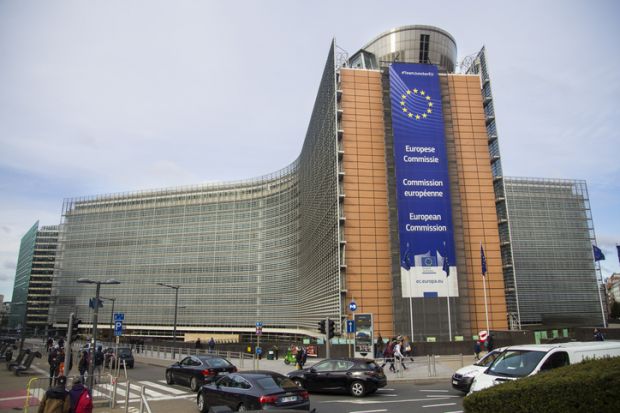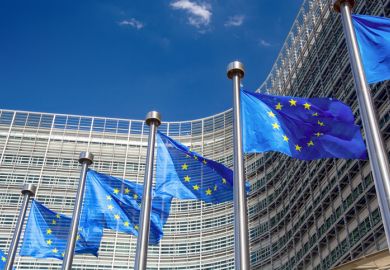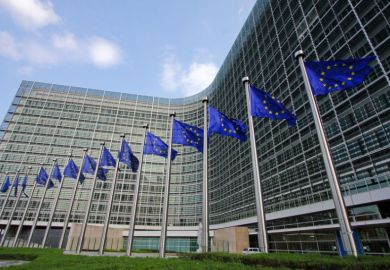Ursula von der Leyen has unveiled the new European Commission, naming Bulgaria’s Ekaterina Zaharieva as commissioner for start-ups, research and innovation in a move likely to be welcomed by much of the scientific community.
Education will fall under the remit of Romanian MEP Roxana Mînzatu as executive vice-president for people, skills and preparedness. Previously, research and innovation and education had been combined in the portfolio of Iliana Ivanova, the former commissioner for innovation, research, culture, education and youth, who announced her resignation last month.
Commission president Dr von der Leyen also appointed five other executive vice-presidents: Teresa Ribera, responsible for clean, just and competitive transition; Henna Virkkunen, in charge of technological sovereignty, security and democracy; Stéphane Séjourné for prosperity and industrial strategy; Raffaele Fitto for cohesion and reforms; and Kaja Kallas as high representative and vice-president.
The announcement comes after 19 Nobel laureates called on Dr von der Leyen in an open letter to establish a stand-alone portfolio for research and innovation, cautioning that the European Union could lose its “competitive edge” in the absence of a “clear focus on enhancing European research and securing a leading position for Europe in research and technology”.
Revealing her new team, Dr von der Leyen said in a statement that the new College of Commissioners was “committed to competitiveness”, referencing the recently released Draghi report, which placed significant emphasis on boosting innovation, as a key influence.
Ms Zaharieva, the new R&I commissioner, is a former lawyer, and also served as deputy prime minister of Bulgaria on three occasions. “We must put research and innovation, science and technology at the centre of our economy,” Dr von der Leyen said, detailing Ms Zaharieva’s role. “She will help ensure that we invest more and focus our spending on strategic priorities and on groundbreaking innovation.”
Among Ms Zaharieva’s goals, as set out in her “mission letter” from the commission president, is the proposal for a European Research Area act establishing a “fifth freedom”, or “the free movement of researchers, scientific knowledge and technology”, in order to “reduce fragmentation of research and anchor innovation and research into the single market”. The new commissioner’s brief also includes a goal to expand the European Research Council and the European Innovation Council, as well as the creation of a “long-term strategy to boost European research infrastructure”.
Ms Mînzatu has a political science background, with previous responsibility for European affairs in the Romanian parliament. “She will have the responsibility for skills, education and culture, quality jobs and social rights,” Dr von der Leyen said. “Roxana will notably lead on a ‘union of skills’ and the European pillar of social rights. She will focus on those areas which are crucial to unite our society.”
Her mission letter directs her to develop the European Education Area and “strengthen” Erasmus+, with further work on the European Universities Alliance and the proposed European degree.
Speaking to Times Higher Education, Kurt Deketelaere, secretary general of the League of European Research Universities (Leru), noted that the roles of all six executive vice-presidents had “clear links with research, innovation and education policy”, with Ms Mînzatu, Ms Virkkunen and Mr Séjourné likely to be “key”.
Professor Deketelaere said it was a “pity” that research and innovation and education were no longer within the remit of one commissioner, but he commended the naming of skills as an “explicit competence”. Calling the new college “a very complex picture”, he stressed that “cooperation and coordination will be key”.
Jan Palmowski, secretary general of the Guild of European Research-Intensive Universities, said Ms Zaharieva’s brief was “very welcome and critical”, albeit lacking any mention of the Marie Skłodowska-Curie Actions, which he described as an “outstanding success for Europe”.
He further welcomed the move of Erasmus+, the European Education Area and the European Universities Alliances to Ms Mînzatu’s portfolio, telling THE: “This represents a heightened significance for Erasmus+, and a clear recognition of the hugely important role universities are playing in the development of skills in Europe.”
Register to continue
Why register?
- Registration is free and only takes a moment
- Once registered, you can read 3 articles a month
- Sign up for our newsletter
Subscribe
Or subscribe for unlimited access to:
- Unlimited access to news, views, insights & reviews
- Digital editions
- Digital access to THE’s university and college rankings analysis
Already registered or a current subscriber?








